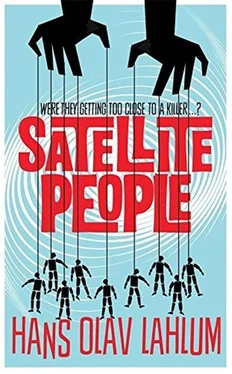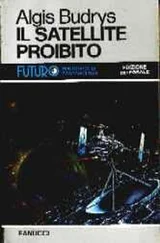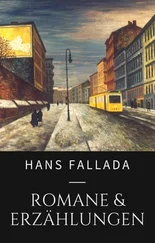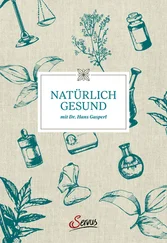I was starting to realize that this would be a long and difficult investigation. But for the present, I had no more questions for Ingrid Schelderup. She also asked for permission to leave, and was granted this once she had given me a telephone number and a promise to stay in town.
I had initially thought of calling in the Wendelboes separately. However, when he then came marching in with her in tow and seemed so determined, I did not dare protest.
Petter Johannes Wendelboe said that he was sixty-seven years old, and despite his white hair he was still a straight-backed and solid man with lithe, dynamic movements. Else Wendelboe was sixty-three, petite, and still a natural blonde. It struck me that she must have been extremely beautiful in her youth. I noted down that her maiden name was Wiig.
They said almost in one voice that they had been married since 1932, had three grown children and five grandchildren, and lived in a large house in Ski. Petter Johannes Wendelboe was a trained officer, but had changed career to become a businessman at an early age. He had held a number of different shareholder and board positions, but had now retired and left the business to his eldest son.
In terms of their relationship with the Schelderup family, he told me that it was the war that had brought Magdalon Schelderup and Petter Johannes Wendelboe together. They had continued to meet regularly through the years since the war, but were not necessarily what one might call close friends. In recent years, in fact, any contact had been entirely social and routine. Wendelboe had had shares in Schelderup’s company for a while, but had cashed them in without it leading to any conflict when the company had become firmly established in the mid-1950s, following an optimistic expansion.
The Wendelboes had been in Bergen visiting their daughter for the past few days, but had flown back today and driven out here in order to make the supper. They hesitated in response to my question as to whether the Schelderups were as keen to visit them, but then answered that they had had very few social gatherings at home with people other than the closest family in recent years. But when they did have parties, the Schelderups were of course invited, and as far as they could remember had always come. And so they felt that it was perfectly natural to visit an old war comrade whenever he had invited them.
I tried to ease the atmosphere a bit by asking what they could remember of Magdalon Schelderup’s dead brother from the 1930s and 1940s. They both started. Mr Wendelboe replied that they certainly could remember him, but it did not give them much pleasure. The first time they had met Magdalon Schelderup, he had confided in them how ashamed he was to have a brother who traded with the Germans and earned money from it. Thanks to Magdalon Schelderup’s record in the Resistance movement, nothing more was ever really made of this. He had, however, on several occasions expressed sorrow over his brother’s failings, and had, when he inherited his brother’s wealth, given a sum of several hundred thousand kroner to a charity for those bereaved by the war.
The rumours rumbled on for several years, and when Magdalon Schelderup started his political career in the Conservative Party there were some who opposed it and had tried to use this against him. They had, however, not succeeded. He had been elected to the Storting in 1949 as he had hoped and had pulled out again four years later, even though he could have been re-elected.
‘But something unexpected happened on Liberation Day itself, in which Magdalon Schelderup was involved,’ I probed. The Wendelboes exchanged fleeting glances before they nodded. But Petter Johannes Wendelboe’s voice was still calm when he continued.
‘It promises well for the investigation that you have already managed to unearth the story, though it can hardly have any connection to the murder today. It was a strange and tragic incident, but did not seem to cause Magdalon much concern afterwards. His explanation was reasonable enough and the guilty party was a mentally disturbed man, who gave an insane statement. So there was little doubt as to the outcome. But things like that are often a burden. And though I never heard Magdalon mention it later, I do think that it plagued him.’
I gave him a quizzical look, but he said nothing until I asked for further details.
‘Our group in the Resistance was small, but still had a dramatic and important history. We never had any more than six or seven members, and now that Magdalon is gone, my wife and I and Herlofsen are the only ones left alive. The group was established as early as winter 1940-41 and managed to carry on operating without being caught until Norway was liberated. Magdalon joined in summer 1941. He contacted me himself. It was a very difficult year. We lost a member in the spring and another in early autumn. Both were found shot dead in their own homes. The murderer was never found, either during or after the war. We have to this day simply called him the Dark Prince. He was given the name because he only fired in the dark of night, and no one ever saw him in daylight.’
I was fascinated, in part by the story and in part by the expressionless face and controlled voice with which Wendelboe told it.
‘For the remainder of the war, Magdalon and I and the other members of the group slept in rooms without windows, with the door locked. As I understood it, he continued to do this for many years, even though he was not a man who was easily scared. The Dark Prince never made another appearance after 1941 and we never found out whether he was a German or a Norwegian defector. During the war we believed and hoped that he was a German who had either been killed or left Norway, but afterwards we thought it was perhaps more likely that he had been a Norwegian. The modus operandi was not German. They generally came in uniform with dogs in the early morning. We hoped that maybe the Dark Prince was one of the Nasjonal Samling members we liquidated later. We suspected one of them. But we still do not even know if it was a man. I would dearly like to know for certain before I die who the Dark Prince was.’
I was writing all this down as fast as I could. Fortunately, Wendelboe spoke relatively slowly. It had become a two-way communication with short questions from me and long answers from him. I vaguely registered his wife, who was sitting on the sidelines on the sofa, nodding from time to time.
‘So this Resistance group also carried out liquidations?’
Wendelboe nodded in confirmation and looked even more serious when he continued.
‘Our country was at war, young man, and no one could predict the outcome. We did what we had to whenever we could. Even when it cost the enemy their lives and us our peace of mind and a good night’s sleep for many years to come. But we are talking about a total of five men over the course of four years, and in all cases there was no doubt about the guilt and evil of those men. I will carry those five names with me to the grave. And I will also take with me the knowledge that they all had the lives of good Norwegians on their conscience, whether directly or indirectly, and would have deserved to be shot by the Norwegian state if we had not killed them during the war.’
Petter Johannes Wendelboe had leaned forwards in his chair so that his face was now alarmingly close to mine. It was not hard to see why his presence resulted in a subdued atmosphere at dinner parties in the house, or to understand that he was a man Magdalon Schelderup had respected. I had no desire to ask Wendelboe whether the five would truly have been executed after the war. I had a feeling that he was not entirely satisfied with the treason trials.
‘The names are not strictly relevant here. Now, is my understanding correct, that both you and Magdalon Schelderup took part in liquidation operations in the latter part of the war?’
Читать дальше












